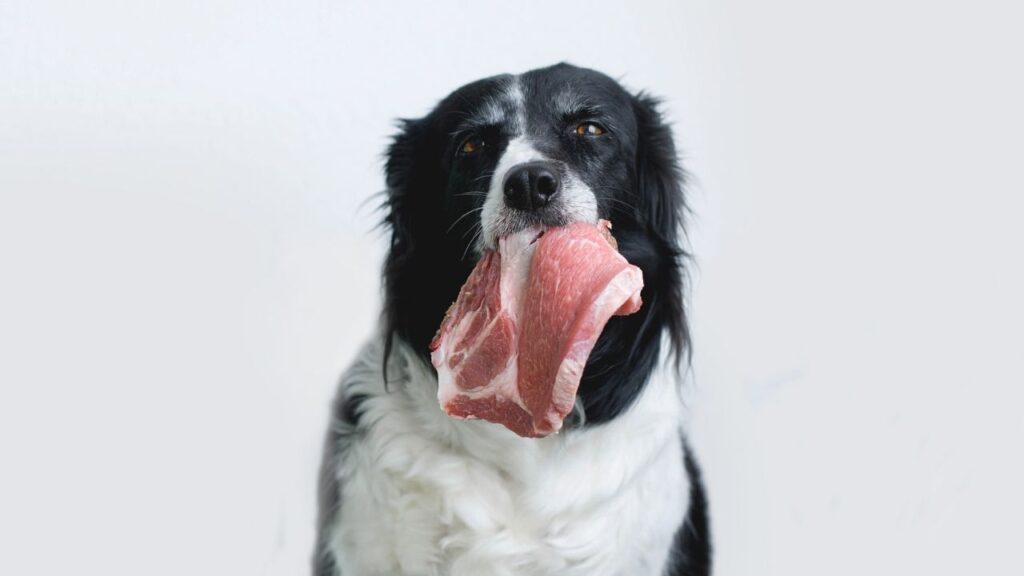A boost of beneficial bacteria that can help support your dog’s gastrointestinal health and heighten their immune system.
Key Takeaways
- Probiotics are good for dogs with cancer.
- Probiotics can help with cancer by supporting a healthy immune system.
Probiotics for Dogs
The gastrointestinal tract of your dog harbors billions of live bacteria. Among these are a group of beneficial microorganisms called probiotics. Veterinarians recommend probiotics for dogs when that population of probiotics( bacteria) might be threatened or killed by other treatments.
Probiotics Are Healthy for Dogs
It turns out that these little bacteria play a big role in the overall health of all animals, dogs and humans alike. This was first touted in 1903, when Lactobacillus spp. from yogurt was recognized as having beneficial effects.2
The perceived weight of this importance has only gained momentum over the years, as more and more diseases are connected to a disruption of intestinal microbiota and the immune system.3
Balancing the Gut
There are three types of changes in your dog’s intestinal microbiome that may contribute to disease development. These include:3
- Losing beneficial microorganisms (probiotics)
- Gaining potentially harmful microorganisms (pathobiotics)
- Loss of overall microbial diversity
What triggers these changes? Well, it can be a wide range of things, including dietary shifts, medical interventions, infections, individual genetics, hormonal changes, psychological stress, and physical stress.3
Increasing your dog’s probiotic intake can help to ensure that your dog has plenty of “good” bacteria to counteract the negative outcomes and disease associated with these changes.
Probiotics can be found in some natural sources that are safe for your dog to eat, including yogurt, kefir, and fermented vegetables.1 Unfortunately, it may not be safe for your dog to eat enough of these products to make a difference.
Instead, your veterinarian may suggest a probiotic supplement to help your dog maintain a desirable intestinal microbial balance. There are many probiotics for dogs on the commercial market.
Probiotics Benefits for Dogs
Previous research has shown that probiotics can impact the microbiota found in your dog’s gastrointestinal tract.
One study gave 15 adult dogs dry food with no probiotics for 2 weeks, then added the probiotic Lactobacillus acidophilus to their food for 4 weeks, and then switched them back to the original dry food for 2 weeks.5 The researchers found significant increases in all sorts of biologically helpful components related to immune system function, including an increase in red blood cell counts, hemoglobin concentration, neutrophils, monocytes, and serum immunoglobin G (an antibody), and a reduction in the number of fecal clostridia (a germ that causes diarrhea) while the dogs were on the probiotic diet.
Another study examining the probiotic strain Lactobacillus fermentum CCM 7421, isolated from the feces of a healthy dog, found that it increased the lactic acid population responsible for initiating the fermentation process that helps probiotics grow, prolonged the reduction of clostridia, and improved fecal consistency.3
In a study focused on puppies, 7 of them were put into a group that received a control diet with no probiotics, and 7 were put into a group that received a diet with the probiotic strain Enterococcus faecium SF68 from the time of weaning until they were a year old.5 Results were mixed, but some evidence of an immunity advantage was noted in the group that was given the probiotic. Their total immunoglobin A and B cells (an antibody that stops foreign substances from harming the body) were higher than that of the control group. Interestingly, the control group also registered lower presence of the Canine Distemper Vaccine administered earlier on in the study.
Probiotics for Dogs with Cancer
Intestinal bacteria have been implicated in several types of cancer, though this is not well studied in dogs.5
However, researchers do know that microbiota composition changes with cancer. Significant differences were found in the gastrointestinal microbiota communities of 12 dogs with stage 3 or 4 lymphoma when compared to 21 dogs that were healthy and cancer-free.6
Dogs with cancer showed a lower abundance of healthy bacteria such as Paecalibacterium spp., Fusobacterium spp., and Turicibacter spp. and a higher abundance of bacteria that causes infections, such as Streptocaccus spp.
Common Uses of Probiotics for Dogs
Probiotics have many uses and applications.
- They can fight against disease by controlling pathogenic organisms in the gastrointestinal tract of dogs.7
- Probiotics can also compensate for the effects of antibiotics by resisting them and helping to recover beneficial bacteria.8 Note that not all probiotics are resistant to all antibiotics. For example, Lactobacillus reuteri BCLR 42 and Lactobacillus. plantarum BCLP 51 showed strong resistance to the antibiotics vancomycin and metronidazole, but not to erythromycin, ampicillin, and cefotaxime.8
- Important and relevant to all cancer types, probiotics can strengthen the immune system. For example, research investigating two strains of probiotics found that they increased neutrophil populations.8 Neutrophils are essential in phagocytosis, the process that removes pathogenic bacteria and triggers adaptive immune responses.
- Probiotics may also aid in counteracting gastrointestinal side effects from cancer therapy treatments.9 For example, probiotics can ease gastrointestinal inflammation that leads to loss of appetite, diarrhea, and weight loss.10 Collectively, this suite of symptoms can lead to “leaky gut”, a condition which may advance to the point of your dog’s intestinal tract being unable to absorb any nutrients.10
Safety and Side Effects
Bacterial species show host specificity.7 This means that the best probiotics for dogs are ones isolated from dogs.
For example, one study isolated Lactobacillus acidophilus LAB20 from a healthy dog and investigated its ability to adhere to epithelial cells in the digestive tract of pigs, dogs, and humans. Adhesion was better in canine colons than in pig or human colons.12
A number of commercially available probiotic products marketed for use in dogs use probiotic microorganisms of human origin. This is problematic because they are unable to survive the canine gastrointestinal tract in adequate numbers and can’t colonize the intestine for long.11
Dogs can be given probiotics meant for humans, but as mentioned above, effectiveness will suffer.
Some dogs that are given probiotics may experience:9
- digestive discomfort
- diarrhea
- bloating
- gas
- constipation
- loss of appetite
- nausea
Keep in mind that probiotics are living organisms.13 They must be consumed alive to incur health benefits,13 so be sure to check the shelf life of the probiotic product you purchase and adhere to its expiration date. Giving your dog an expired probiotic will do them no good.
As with any supplement or product, it can’t hurt to research the brand and ensure that it is reliable, reputable, and adheres to the safety standards prescribed to the industry.10
Probiotics Can Be Given With…
Always discuss any proposed changes to your dog’s daily habits with your veterinarian.9 Dogs and their cancers are highly variable so what works in one case may not work in another. Your veterinarian will be able to help you navigate what may be best for your dog.
Typically, probiotics can be used with chemotherapy, although effectiveness may depend on the side-effects your dog experiences from the treatment.9
Probiotics can also be used with alternative treatments for canine cancer, including cannabidiol products, omega-3 fatty acids, turkey tail mushrooms, curcumin, and prebiotics.10
When to Not Use Probiotics in Dogs
Probiotics may not be helpful if your dog has developed advanced stage “leaky gut” from chemotherapy. At this point, your dog is unable to absorb nutrients, so probiotics will likely not add any benefit to their treatment.10
Studies have used probiotics with puppies,5 but certain products may not be suitable for puppies under 6 weeks of age.
Some probiotics contain Aspergillus. If your dog has an Aspergillus allergy, check your product label to be sure it doesn’t have this species before giving to your dog.
How to Give Probiotics
Probiotics come in many delivery systems. These includes soft chews (be mindful of unhealthy additives and preservatives), capsules, powders, or pastes.9 Powders are thought to work best because probiotics live better in this form than any other due to better air and moisture control.
If your dog is struggling to consume capsules, you can open them and sprinkle the contents onto food. You can also mix the powder with water and then work the mixture into your dog’s food.
Most probiotics are flavored to increase overall palatability. If your dog dislikes one product, try a different one to see what he likes.
The dose of probiotics given to your dog depends on their size and weight and may vary between products. Some products are already packaged in single servings, while powders may come with a measuring scoop.
Give probiotics with food to avoid any digestive upset, which is possible with any supplement.
Your dog may only need probiotics short term to restore a healthy number of good bacteria in their system, or they may require long-term use for maintenance of a robust community of microorganisms.
Colony Forming Units
You may see the initials “CFU” on probiotic products. This stands for “colony-forming units” which is an estimate of the number of viable cells in a particular volume or mass (usually g or mL).13
Remember, probiotics are alive, so this can be important. However, higher CFUs don’t necessarily mean greater health benefits.13
What If I Miss a Dose?
If you miss a dose, simply skip it and follow your schedule as normal when it is time for the next dose. Do not double dose your dog to compensate for the missed dose.
Storage and Handling
You should follow the storage and handing directions for your specific product. You may see instructions telling you to store the product at room temperature, out of direct sunlight, and to avoid higher temperatures.
Our Take on Probiotics for Dogs with Cancer
A high-quality probiotic with bacterial strains specific to dogs can make a huge impact in improving your dog’s gastrointestinal health and immune system. Research is showing that the connections between our overall health and our gut microbial communities are undeniable.
While this research is still gaining its footing in dogs, studies have already begun to show support for the use of probiotics in increasing biological tools needed for optimal immune system function.
A strong immune system is absolutely paramount in fighting cancer, and something that often suffers under conventional treatments such as chemotherapy.
Take caution with the wide availability of probiotics on the market and opt for reliable brands that are tailored to dogs. We recommend asking your veterinarian if and how probiotics may be able to support your dog’s fight against cancer, as well as which brand and formula you should try first.
- How to get more probiotics. Harvard Health. https://www.health.harvard.edu/staying-healthy/how-to-get-more-probiotics. Published August 24, 2020. Accessed April 16, 2023.
- Zambori C, Cumpănăşoiu C, Moţ D, Huţu I, Gurban C, Tîrziu E. The antimicrobial role of probiotics in the oral cavity in humans and dogs. Sci. Papers: Anim Sci Biotechnol 2014;47(1):126-130.
- Strompfová V, Kubsová I, Lauková A. Health benefits observed after probiotic Lactobacillus fermentum CCM 7421 application in dogs. Appl Microbiol Biotechnol 2017;101(16):6309-6319.
- Baillon MLA, Mashall-Jones ZV, Butterwick RF. Effects of probiotics Lactobacillus acidophilus strain DSM13241 in healthy adult dogs. Am J Vet Res 2005;65(3):338-343.
- Benyacoub J, Czarnecki-Maulden GL, Cavadini C, Sauthier T, Anderson RE, Schiffrin EJ, von der Weid. Supplementation of food with Entercococcus faecium (SF68) stimulates immune functions in young dogs. J Nutr 2003;133:1158–1162
- Gavazza A, Rossi G, Lubas F, Cerquetella M, Minamoto Y, Suchodolski JS. Faecal microbiota in dogs with multicentric lymphoma. Vet Comp Oncol 2017;16:E169-E175.
- McCoy S, Gilliland SE. Isolation and characterization of Lactobacillus species having potential for use as probiotic cultures for dogs. J Food Sci 2007;72(3):M94-M97.
- Kim EJ, Kang YI, Bang TI, et al. Characterization of Lactobacillus reuteri BCLR-42 and Lactobacillus plantarum BCLP-51 as novel dog probiotics with innate immune enhancing properties. Korean J Vet Res 2016;56(2):75-84.
- Arriga K. Probiotics for dogs: are they beneficial? The National Canine Cancer Foundation. June 1, 2022. Accessed November 25, 2022. https://wearethecure.org/probiotics-for-dogs-are-they-beneficial/#:~:text=Probiotics%20for%20Dogs%20with%20Cancer&text=This%20treatment%20is%20especially%20common,help%20reduce%20these%20side%20effects.
- Son K. Your guide on probiotics for dogs with cancer. Veterinarians.org. November 9, 2022. Accessed November 25, 2022. https://www.veterinarians.org/probiotics-for-dogs-with-cancer/.
- Weese JS, Anderson MEC. Preliminary evaluation of Lactobacillus rhamnosus strain GG, a potential probiotic in dogs. Can Vet J 2002;43:771–774.
- Kainulainen V, Tang Y, Spillmann T, Kilpinen S, Reunanen J, Saris PEJ, Satokari R (2015) The canine isolate Lactobacillus acidophilus LAB20 adheres to intestinal epithelium and attenuates LPS-induced IL-8 secretion of enterocytes in vitro. BMC Microbiol 15:4. doi:10.1186/s12866-014-0337-9.
- National Institutes of Health. Probiotics. Office of Dietary Supplements. June 2, 2022. Accessed November 25, 2022. https://ods.od.nih.gov/factsheets/Probiotics-HealthProfessional/.
Topics
Did You Find This Helpful? Share It with Your Pack!
Use the buttons to share what you learned on social media, download a PDF, print this out, or email it to your veterinarian.






